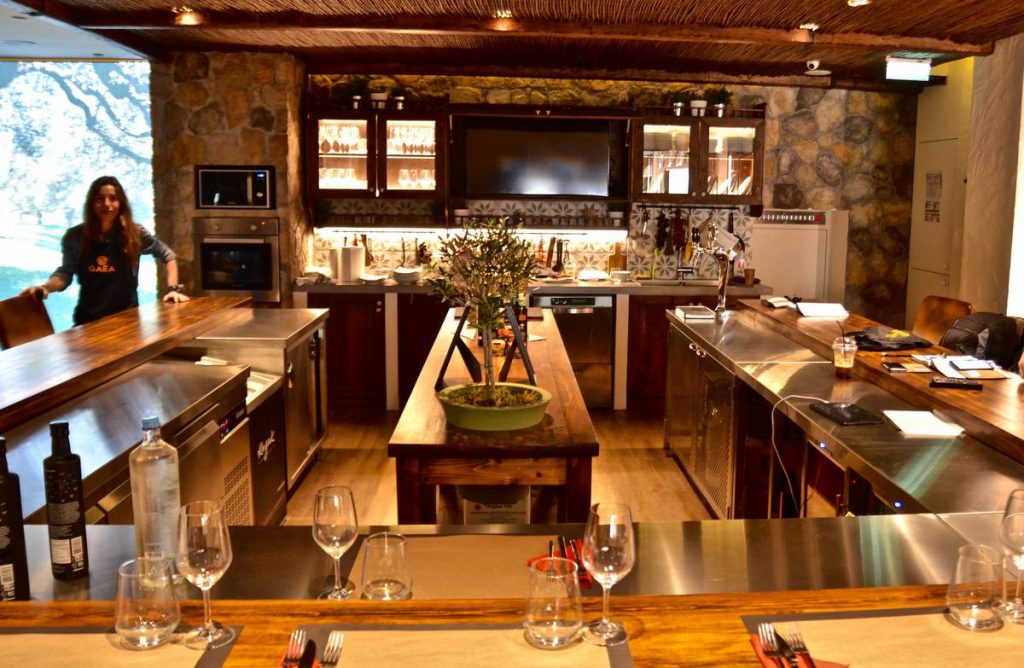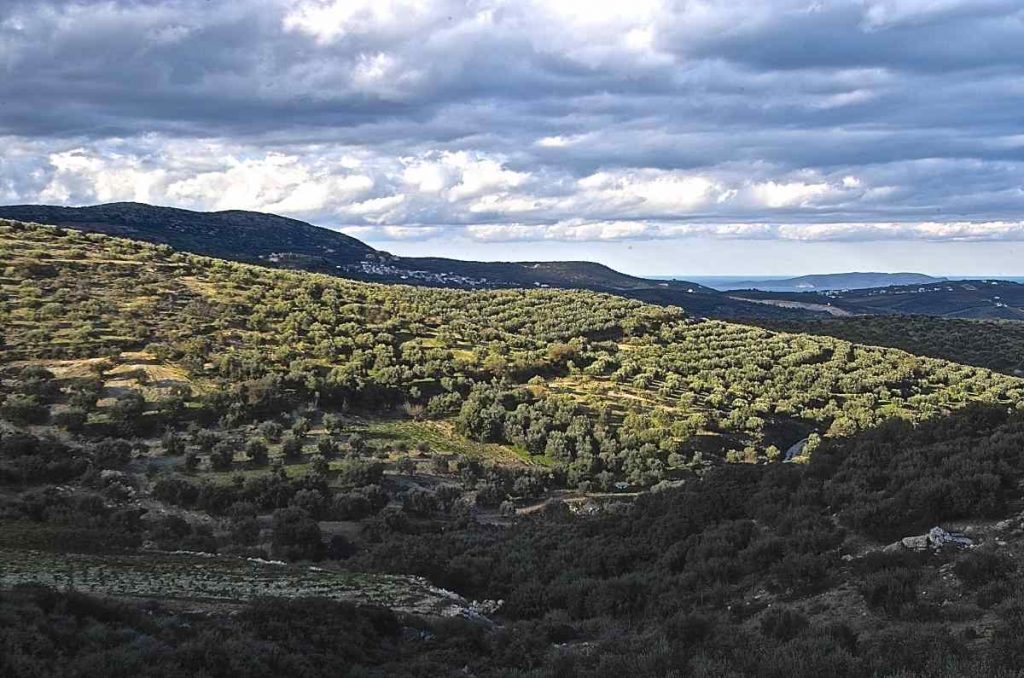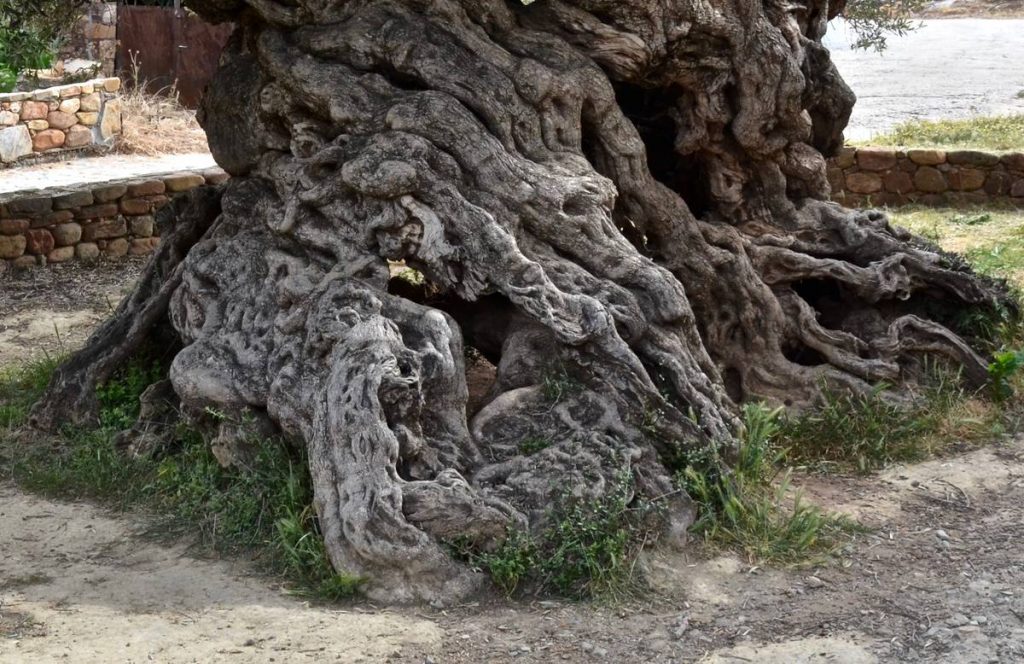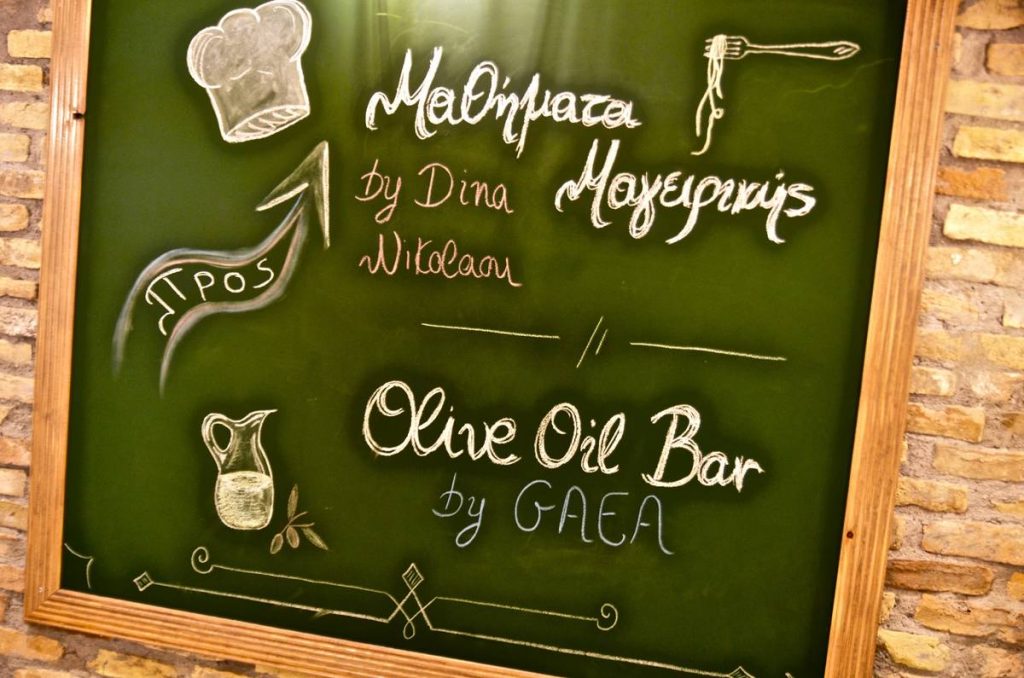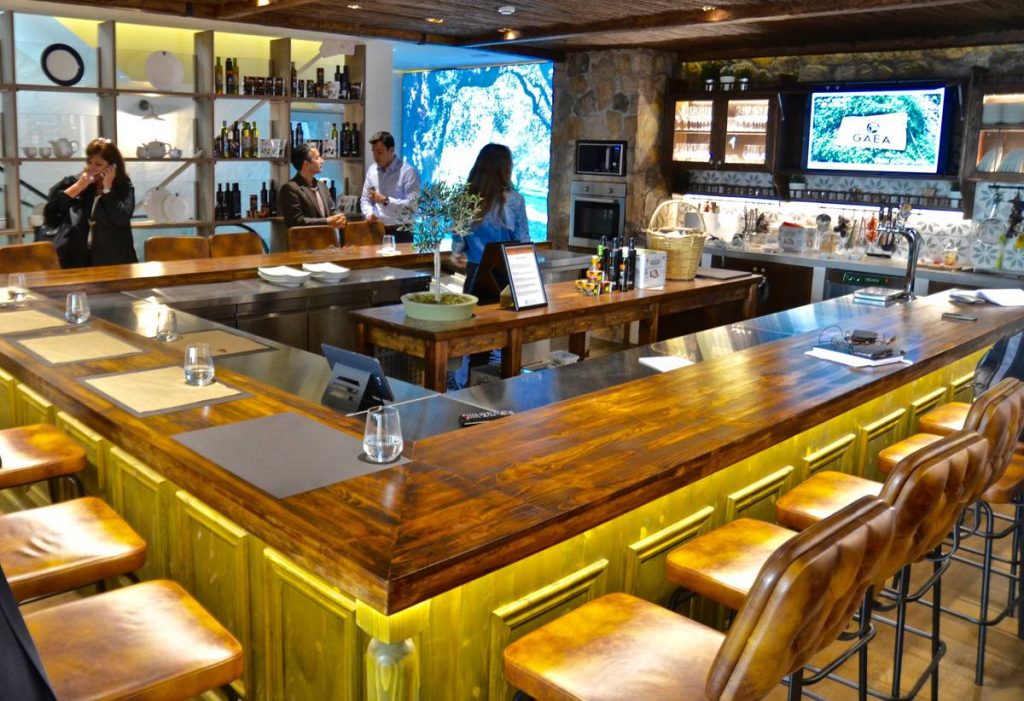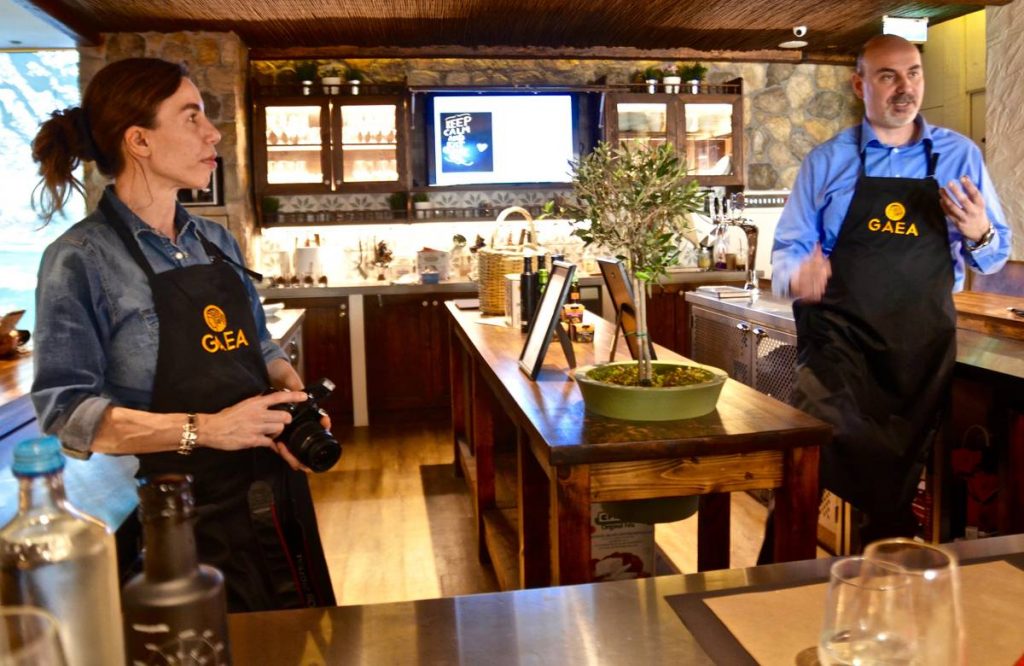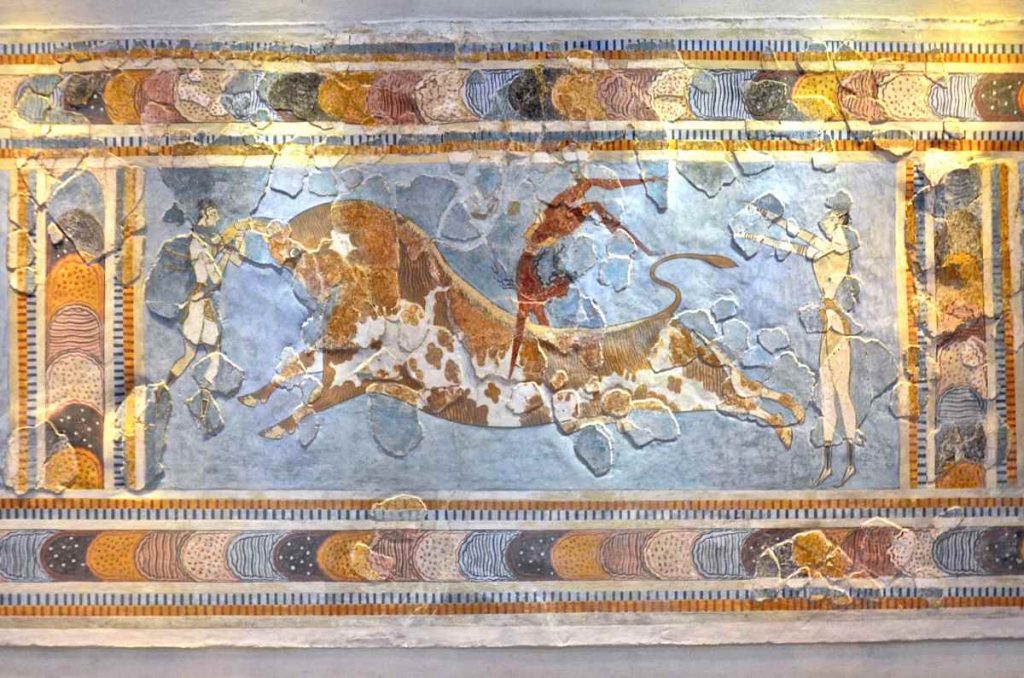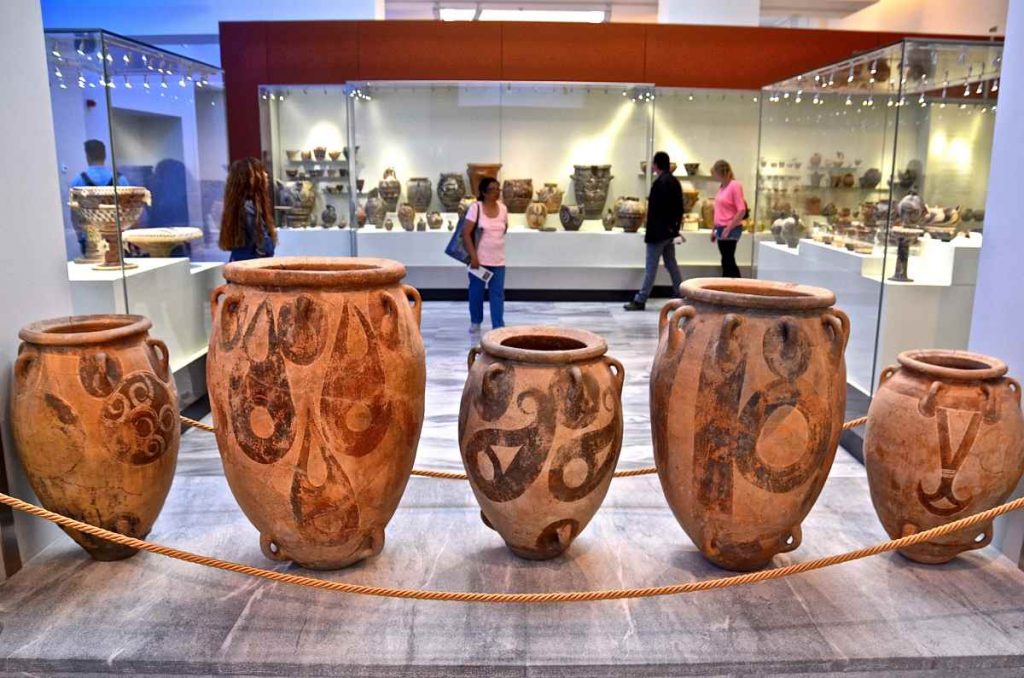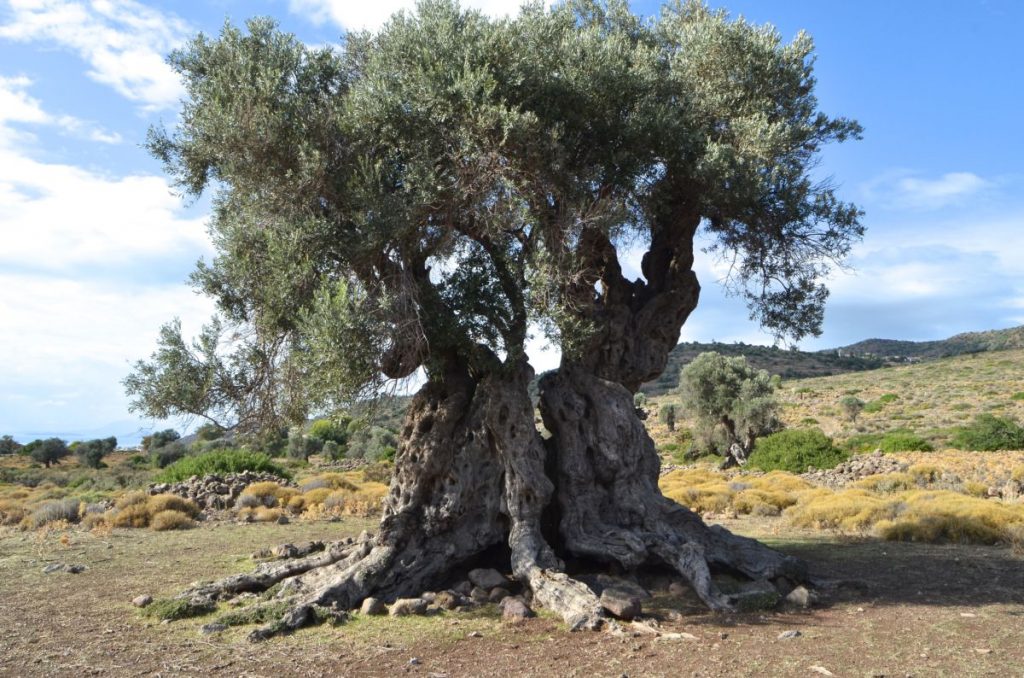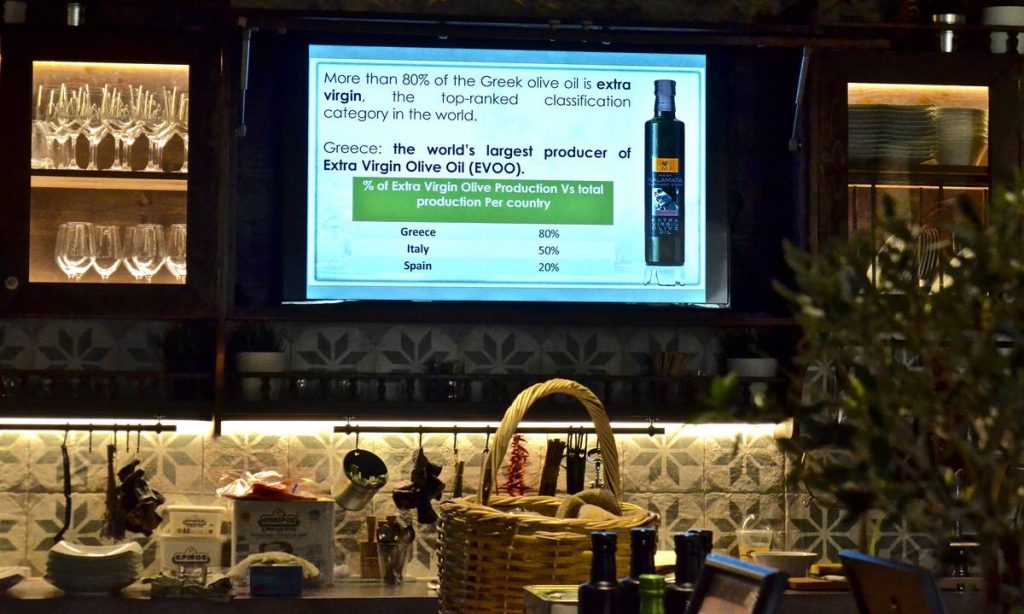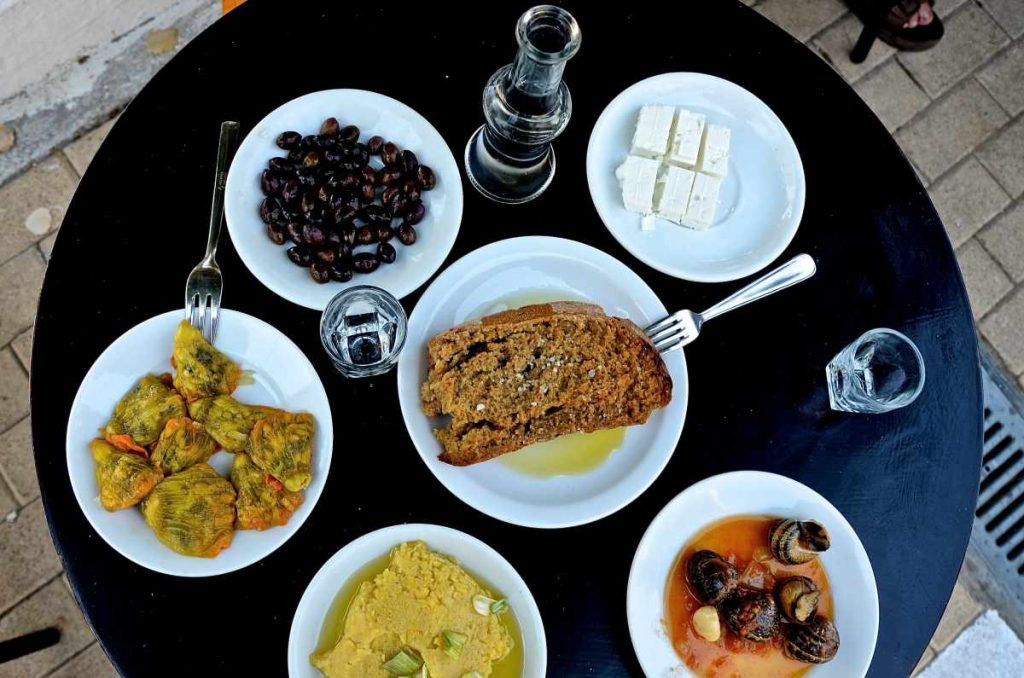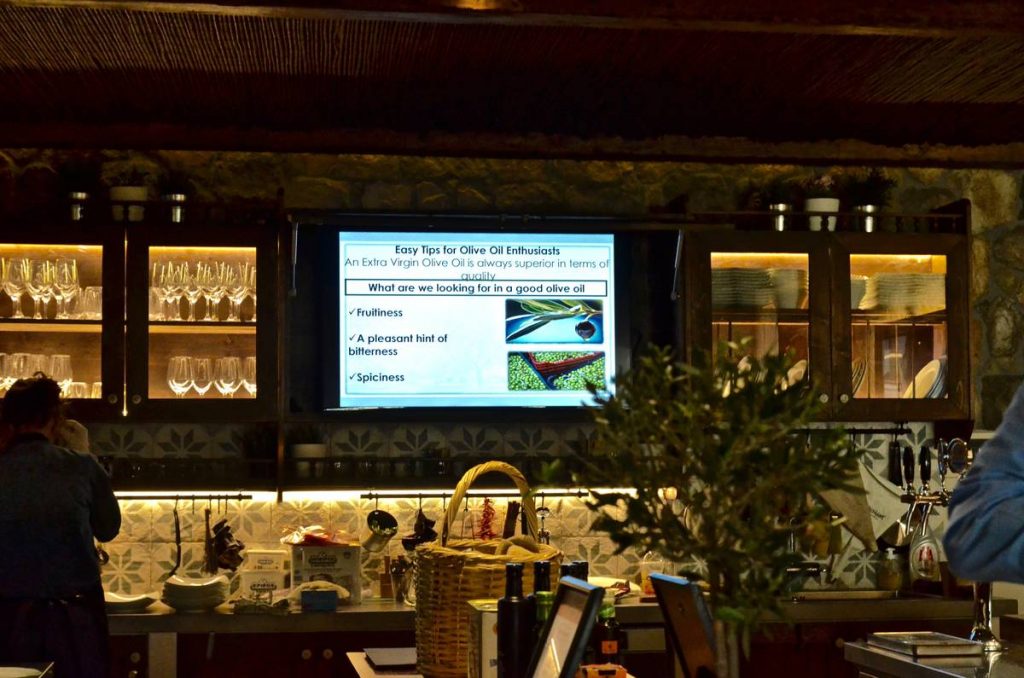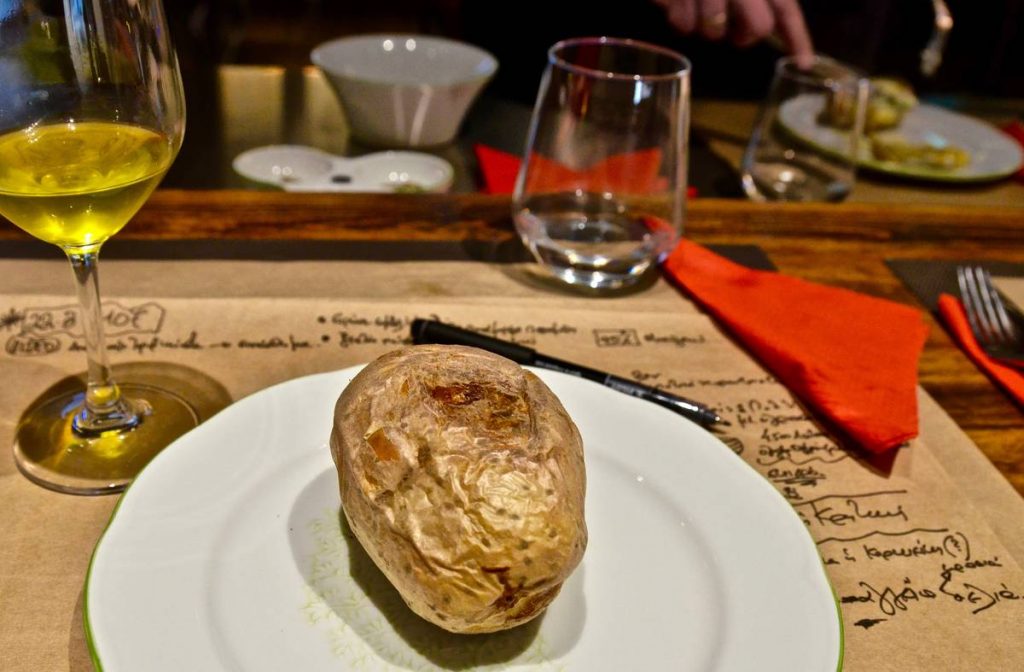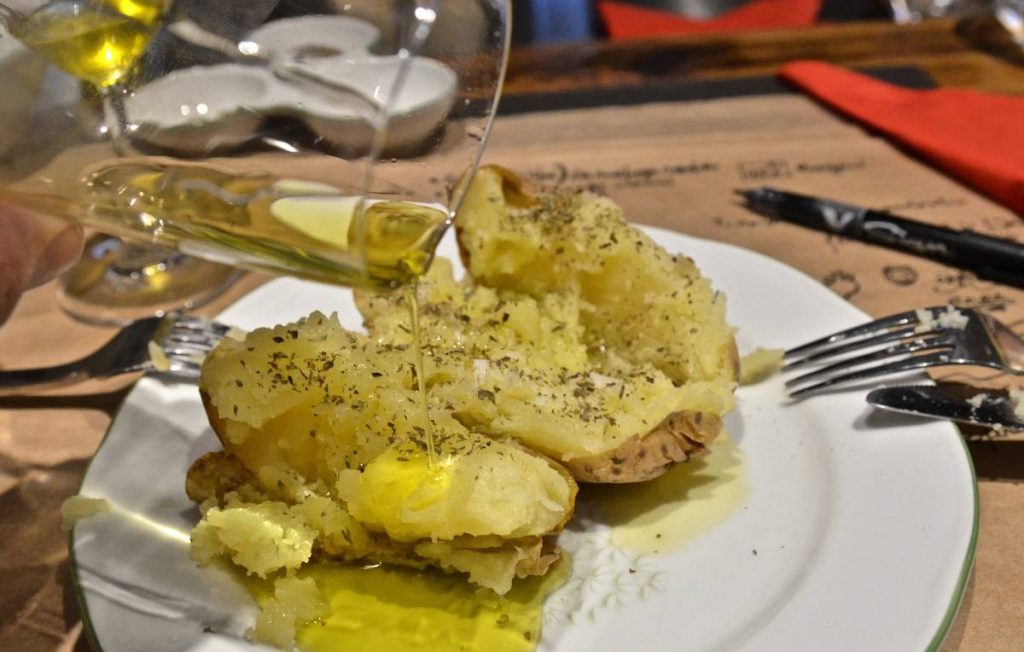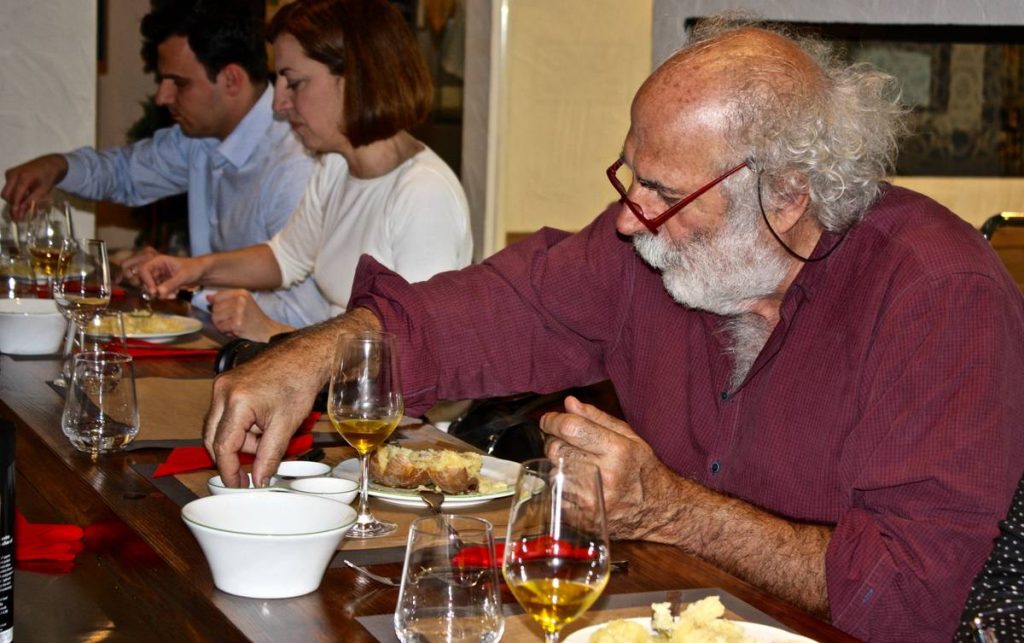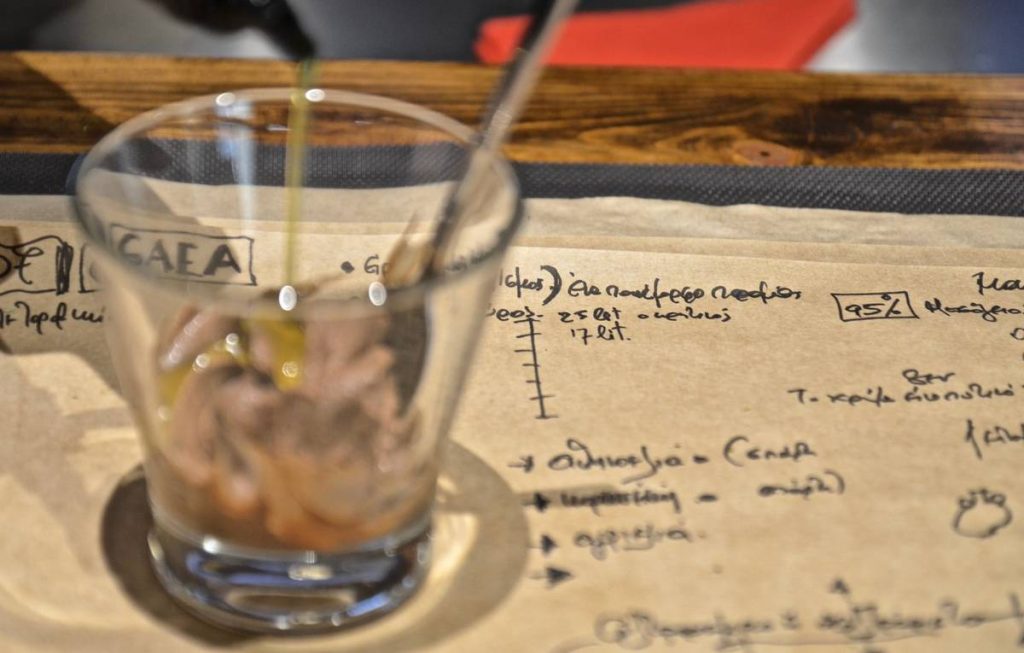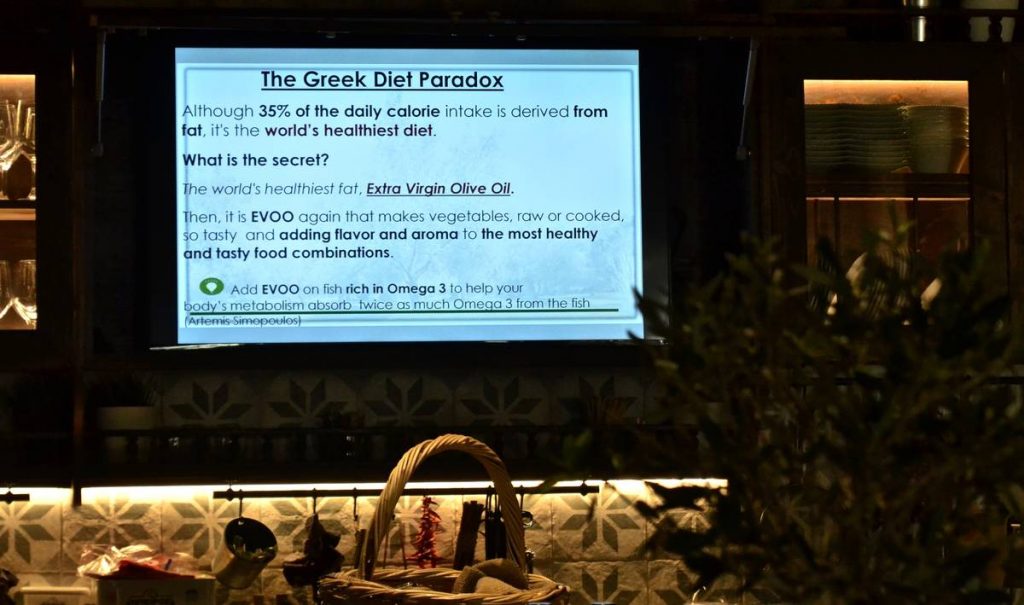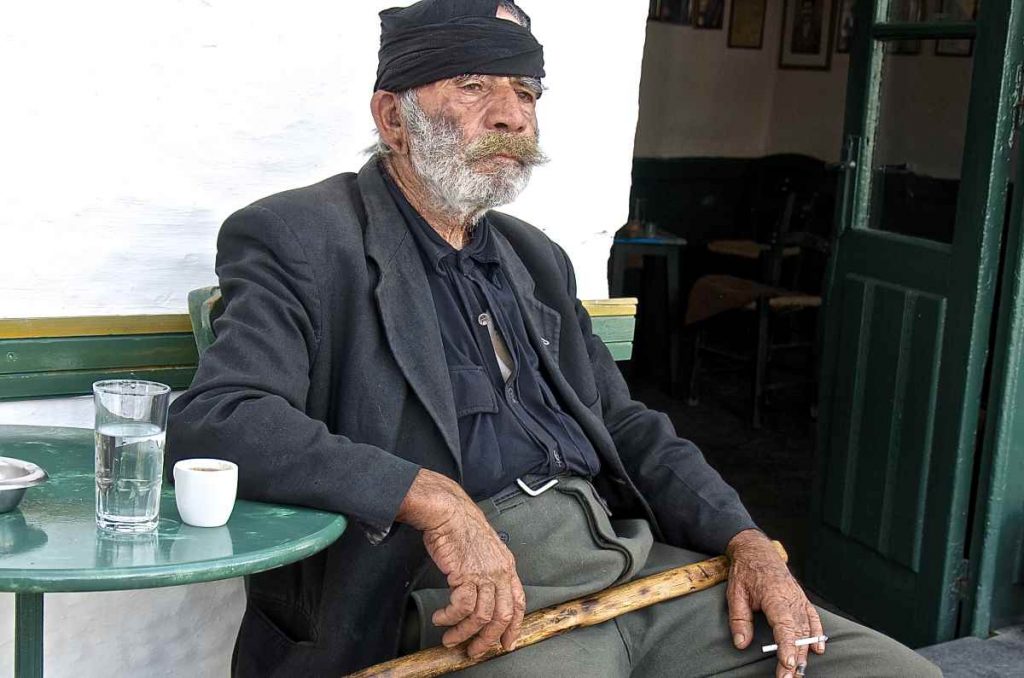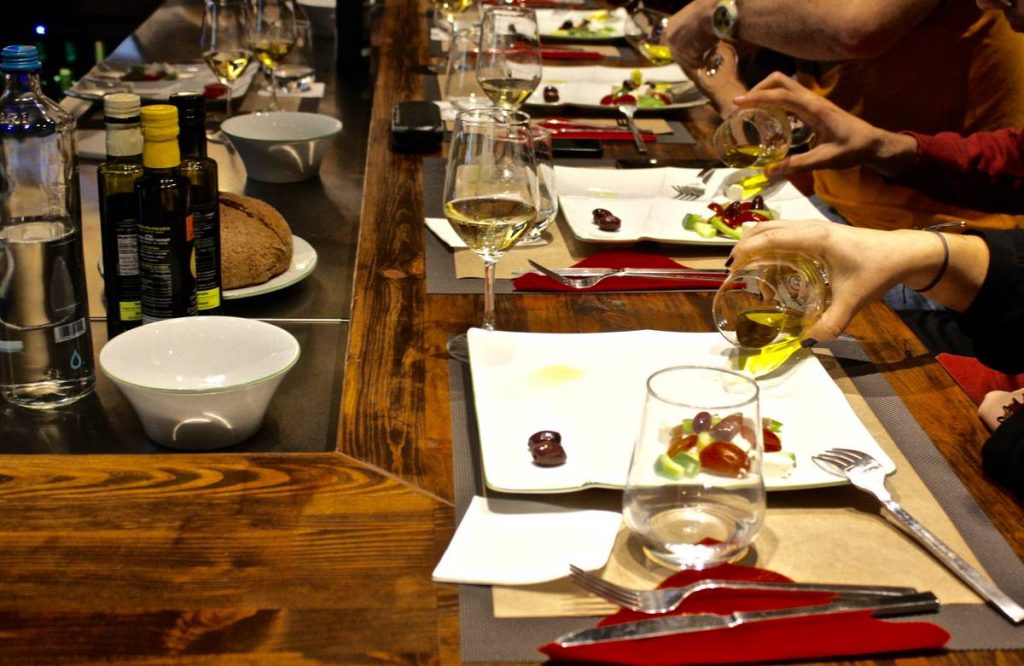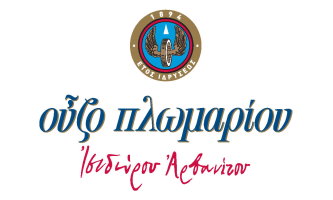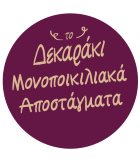Last week I had the opportunity to watch at Olive Oil Bar of gaea an impressive oil tasting that really made me feel very beautiful, but also very proud. Because in the heart of Athens, in the city that took its name from the goddess Athena and that received the fruitful olive as a gift, was created the first Olive Oil Bar in Greece and in the world. A first that was entitled to Greek oil, this unique product of the Greek land, - that we all know how much still unused - and that thanks to the initiative of Gaea, the most internationally awarded Greek company in the field of oil, the opportunity is given to get to know Greeks and foreign visitors to the city.
It was one experience which lasted about an hour and a half and where, immersed in an interactive tasting, we learned a lot about the history of olive oil, its properties, old and modern myths, the criteria of its taste, but we also enjoyed the delicious richness it gives with its special its taste in other foods.
I really like oil and olives and they are one of my favorite topics. By the way I tell you that in my travels to Crete I met the excellent quality olive oil, which in fact belongs to the category of extra virgin olive oil. Today, in Crete, there is a population of 90 million olive trees - mainly of the Koroneiki variety -, which occupy 35,5% of the agricultural land, yield around 65 tons of olive oil and are cultivated by about 90.000 rural families.
In Crete and specifically in Pano Vrouves in the Municipality of Kolimbari is also located the oldest olive tree in the world which is 3.000- 5.000 years old and is still fruitful! The trunk of the tree (at its base has a maximum diameter of 4,50 m and a perimeter of 12,50 m) has an excellent relief with special aesthetics. Its surface is a real work of sculpture, as it presents various shapes that look like strange shapes of faces and things, while with a cut from this tree, which was cut with special ceremonies, the first winner of the Men's Marathon during the Athens 2004 Olympic Games was crowned.
Returning to our topic, the tasting of Gaea Olive Oil Bar in its facilities Yoleni's in Kolonaki, I reaffirmed how necessary is the education of consumers in matters of nutrition and especially in our national products, and how the right information can make them even more attractive and marketable.
The person in charge of the presentation was waiting for us in the specially designed space of Gaea's Olive Oil bar that looked like something between a bar and a home kitchen. Warm atmosphere, the presence of wood is strong and the screens are ready for information. First, an excellent video of Gaea shot in Crete about the olive tree was played. As soon as the screening was over, the participants agreed that the emotional message had been given in the best way and the video had stolen our hearts.
Then began the information about the "world of oil". The information from the screens and the speaker was stormy but in a comprehensible way and we, some were taking notes, some were recording and some were memorizing. And what we did not learn:
We have learned from history that the olive tree has always been a symbol of prosperity, peace, fertility and euphoria. In Greece, the first traces of olives were found in excavations in Santorini and Nisyros, where fossilized leaves aged fifty thousand years were found. According to the French researcher Paul Four, the Cretans of the Neolithic era were the ones who transformed wild olives into cultivable trees. Thus, the first systematic cultivation of wild olives takes place in 2000 BC. in Crete, with oil and olives occupying an important place in the economy, daily life and religious ceremonies.
It is worth noting that the large clay pots (jars) where the oil was stored have been preserved to this day in ancient Knossos and Phaistos. In palace of Ancient Phaistos one can see parts of a rudimentary oil mill. Archaeologists believe that the wealth and economic prosperity of Crete during the Minoan era (3500 BC-1000 BC) was due to the trade of Cretan olive oil. The best customer of the Cretan aromatic oils was Egypt, which received them from the ships that transported them in specially made pseudo-mouth amphorae.
The olive branch was a symbol of peace, wisdom and victory. The tree was sacred, dedicated to the goddess of wisdom Athena, and the wild olive branch (kotinos) crowned the winners of the Olympic Games. From the 10th BC. century olive and oil are studied. Philosophers and healers describe their healing properties, Aristotle reduces olive growing to science, Solon, the first legislator of Athens, enacts a law to protect the olive tree, while Hippocrates first recognizes the beneficial properties of olive oil and olive oil. , muscle aches and other diseases.
In the first tables presented on the screens, we were informed that Greece is the third largest oil producing country in the world, with an average production of 240.000 tonnes, compared to 1.500.000 tonnes in Spain and 500.000 tonnes in Italy. Of course we have proportionally the largest percentage (80%) of extra virgin olive oil production compared to Italy (50%) and Spain (20%). Domestic consumption absorbs 50% of production and the remaining 120.000 tons are exported, while 30.000 tons - about 1/4 - in the form of standard oil, while unfortunately 3/4 are exported in bulk. Only in recent years has Greece begun to standardize and export its extra virgin olive oils, which are still used today by our Italian neighbors.
In oil consumption, however, the Greeks are first, with more than 17 liters per person per year, compared to 11 for the Spanish, 9 for the Italians, 1,5 for the French and less than a liter for the Northern Europeans. Of course, among the Greeks, the Cretans are the champions with 25 liters per person per year, which makes foreigners wonder, like the researcher Ancel Keys: "How much oil do they eat, my God!" he commented as he watched the green salad swimming in the olive oil.
After the historical and statistical quantitative data, we moved on to the field of taste tests where the properties of olive oil were analyzed, ie the fruity, bitter and spicy. The instructor served us the glasses with the top olive oil of Gaea and gave us the necessary tips to taste it, to identify its characteristics and to enjoy it.
This was followed by the potato test, the only one Hot Potato Test. A delicious potato comes to your plate, to try it on its own and then with oil. The system is to peel it and puree it. I followed my own way. I opened it and processed it as the Cretans eat the baked potato. That is, they use the casing as a saucer - as if many, like me, eat the casing, that is, the skins.
It does not take much to understand that olive oil not only enriches the potato with its taste, but also highlights its taste more, especially if you add afrina salt and fresh oregano.
The taste test continues with the tomato, feta, olive where it is confirmed that the oil works as a multiplier and chemical catalyst of the taste of various foods. So we realized why we unconsciously put oil (for us Greeks when we say oil we mean olive oil) everywhere! The culmination of this game was when we added olive oil to a dessert (secret) where the taste took off!
This was followed by the information about the nutritional properties of olive oil, but also the demolition of various bad myths about the use of olive oil, where of course I did not show much interest because I was carried away by the taste of taste.
Those who will meticulously follow the "tradition of the teacher" will learn about the antioxidant gifts of olive oil, about phenols, olive oil for omega-3 and omega-6, about the "Greek dietary paradox", about Myth Busters (olive oil is not recommended for frying, it is fattening, etc) and finally about how olive oil is the healthiest fat.
Much has been said about the virtues of olive oil, and there are hundreds of studies on its importance in the diet. Olive oil is, after all, her biggest secret Cretan diet and Cretan longevity.
I take from a recent trip to Crete, a Cretan proverb told to me by an elder in Anogia -smiling slyly- praising the most important virtue of this divine gift for people: "Drink oil and come at night!"
The Olive Oil Bar seminars by Gaea are made - upon reservation - from Tuesday to Sunday, at 11.30 am. and at 5.30 p.m. (5 people minimum, € 24 per person), and include data on the benefits of olive oil, tasting in a glass / hot potato test, comparative testing of products with and without olive oil and close with a sweet surprise. On the same days, at 8.30 pm, there is the possibility - also upon reservation - of a tasting dinner / seminar (5 people minimum, € 55 per person), always with olive oil in the spotlight, accompanied by four wines of the Gerovasiliou estate or beer Island. (Solonos 9, Kolonaki, 2122223600).
The experience is impressive and the pride is great. And do not forget the signature on the ouga!


